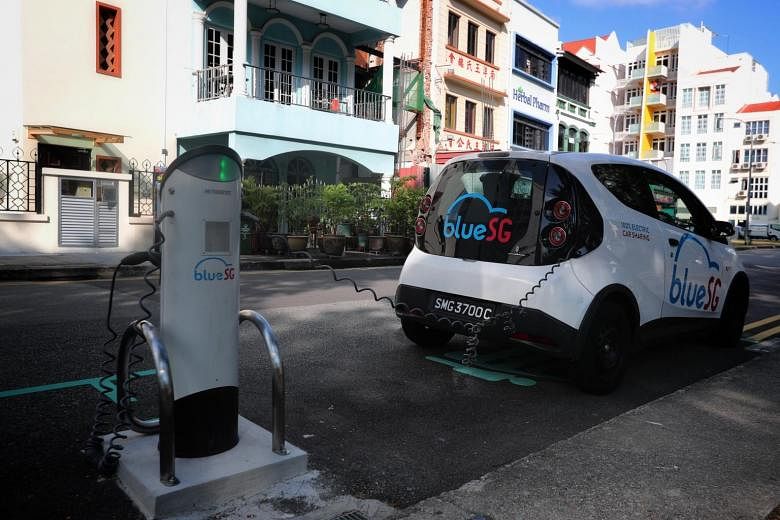The state of electric-vehicle (EV) adoption in Singapore has been lamentable. Out of about 515,000 private vehicles, only 0.2 per cent of them are EVs.
Last year, Tesla's chief executive officer Elon Musk openly criticised Singapore for not supporting electric vehicles.
And in Nissan's latest Kicks e-Power launch of its urban crossover, it described Singapore as a "developing EV market", and quite rightly so.
Yet, this year, amid the unprecedented circumstances, has turned out to be a watershed moment for EV adoption in Singapore - on three levels.
At the policy level, Budget 2020 sets Singapore on course for a society in which all vehicles run on cleaner energy by 2040, be it hybrid vehicles or EVs.
The policies laid out include:
• The expansion of EV charging infrastructure from 1,600 to 28,000 points by 2030
• An early adoption incentive scheme offering a 45 per cent rebate on the Additional Registration Fees, capped at $20,000.
Commercially, extensive collaborations with automobile manufacturers have materialised.
Hyundai recently began constructing its first automated EV factory in the Jurong Innovation District, while Tesla has posted job advertisements for positions in Singapore.
Notwithstanding the cancellation of Dyson's EV project, these indicate a marked change in our drive to actively adopt EVs.
At the individual level, BlueSG, Singapore's shared EV platform, reached its one-millionth rental since its launch in 2017 - evincing Singaporeans' growing comfort with EVs.
Nonetheless, there is more we can achieve - in the meantime and in the next 20 years.
Even though the 2040 vision does extend to public transport, the electrification of buses and taxis must move faster.
Singapore is a small urbanised nation, with a transport system supported by the public sector. This creates a prime environment to introduce EVs and hybrid vehicles as part of a nationwide drive, similar to what Shenzhen has done. Such a movement can breed habits and translate into positive change in consumer behaviour.
Stakeholders should also take steps to incorporate EV-friendly plans into every commercial and residential arrangement - that is, carparks for new build-to-order flats, shopping centres, commercial buildings and petrol stations. This must be a symbiotic association between the government agencies and other public/private stakeholders.
Having all vehicles run on cleaner energy by 2040 is ambitious. However, this ambition can become reality - if we are aware of our duties as global citizens and conscious green consumers.
Cheung Chun Man

